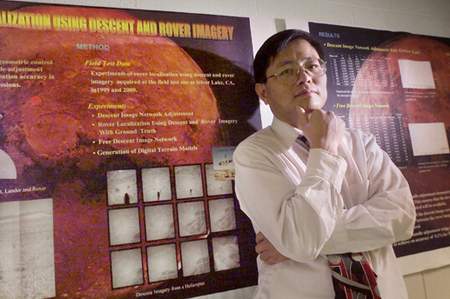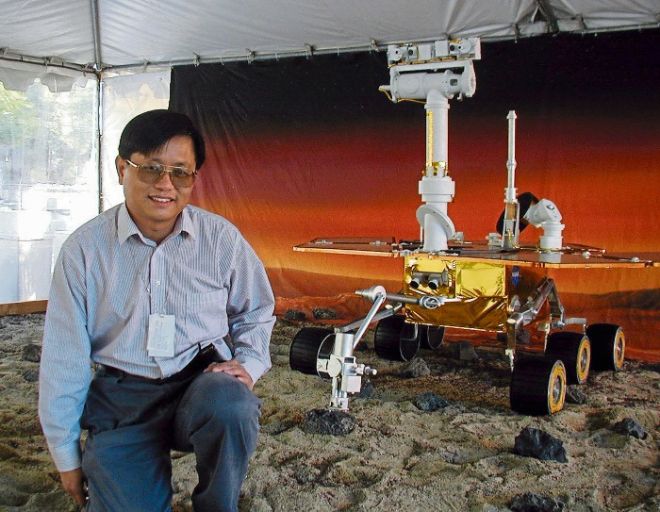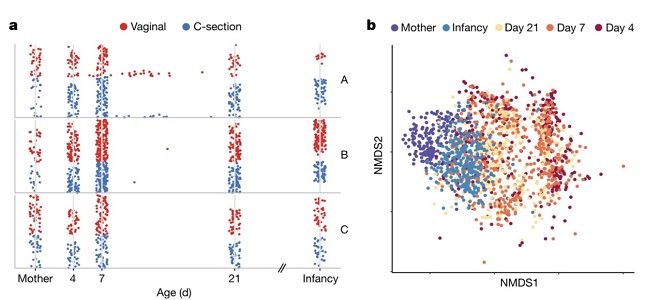Professor Rongxing Li was a star at Ohio State University, attracting international attention as he helped NASA rovers explore Mars in the past decade.
Then, early last year, Li quit his post as OSU’s premier mapping expert and disappeared. No news release was issued to explain his departure, and most information about his 18-year tenure at Ohio State was removed from the university’s website.
Now, federal search warrants filed in U.S. District Court in Columbus reveal that the FBI was investigating Li, trying to determine whether he shared defense secrets with the Chinese.
Li, 56, a U.S. citizen who grew up in China, had been director of the OSU mapping and geographic information system laboratory. Also known as Ron Li, he held an endowed chair in the OSU Department of Civil, Environmental and Geodetic Engineering and was known worldwide for his work in mapping.
His renown came, in part, when NASA selected him to help with its 2003 and 2009 Mars exploration missions. His troubles, too, began with NASA projects.
OSU, the FBI and NASA declined to comment about the case. But search warrants unsealed in August lay out why the government took a hard look at Li.
In January 2014, Li submitted a $36.9 million proposal to NASA for imaging work for a 2020 Mars mission. As part of that proposal, Li had access to Department of Defense technical information that he was prohibited from sharing with the Chinese, according to search warrants.
Li had claimed in the proposal that he had no relationships with Chinese scientists. But OSU researchers knew he had spent 2012 on sabbatical at Tongji University in Shanghai, so Ohio State began an internal investigation to determine why Li had not notified NASA of his China connections.
Investigators determined that Li had numerous, ongoing connections with Tongji, including being listed as a professor and as the director of a center for spatial information. The investigators also found online evidence that he had collaborated with Chinese-government programs to develop advanced technologies, serving as chief scientist for one project.
On Feb. 15, 2014, Li notified Ohio State and NASA that he was withdrawing from the Mars 2020 project. He also told Ohio State that he was in China caring for his sick parents. A few days later, he emailed his resignation to the university. According to a search warrant, he said, “With this email I resign from my position at the Ohio State University.”
Jeff Grabmeier, a spokesman for university research, confirmed Li’s unexpected resignation but said he couldn’t discuss it further and could not say why Li left.
According to the search warrant, Ohio State then called the FBI because of the “unusual circumstances of Li’s departure and the restricted and sensitive nature of some of his research.”The university told the FBI that Li had access to International Traffic in Arms Regulations information with NASA and with Raytheon, a defense contractor.
As part of the FBI investigation, Homeland Security agents stopped and searched Li’s wife, Jue Tian, 56, in San Francisco before she boarded a plane for China on March 1, 2014. Agents seized Tian’s computer, a cellphone and several thumb drives. The thumb drives contained restricted defense information, the warrant says.
Investigators also searched Li’s home in Upper Arlington. According to Franklin County property records, Li and his wife purchased the five-bedroom house on Lane Road in 1997.
Assistant U.S. Attorney Deborah Solove said no charges have been filed against Li or his wife. She would not comment further.
Charles Toth, an OSU researcher who worked in the same department as Li, said Li ran “his own show” at the university and didn’t work with many other professors. He said he couldn’t say more because of “the sensitivity” of the case. Other professors contacted by The Dispatch didn’t return phone calls.
In 2014, Li was one of five scientists named as fellows for the American Society for Photogrammetry and Remote Sensing. His name, however, is no longer on the society’s online list of 2014 fellows.
Society President Stephen D. DeGloria said he knew Li had left Ohio State and was living in China but had no details of the FBI investigation. He said Li had been nominated as a fellow before he quit at Ohio State.
The Upper Arlington house has been for sale since June.
Tian, who returned from China in mid-2014, did not respond to a request for an interview.

俄亥俄州立大学著名美籍华人学者李荣兴从该校离职事件已惊动FBI介入调查。参与了NASA系列探索火星项目的李荣兴是否曾将美国的科研与国防机密泄露给中国方面将是FBI介入调查的重点。
李荣兴去年底从俄亥俄州立大学辞职。当时校方并未发布这一消息,并删除了校方网站上他18年任职终生教授的大多数相关信息。如今,FBI正式入禀联邦法院,递交搜查令申请,要展开对李荣兴的调查行动。
李荣兴今年56岁,系在中国出生的归化美国公民。他此前主管俄亥俄州立大学地理信息测绘实验室,是全球知名的测绘专家。2003及2009年NASA火星探索计划,他都是参与其中的主要科学家之一。
根据今年8月公开的FBI申请法院搜查令的相关信息,2014年1月,李荣兴递交了一份3690万美元的方案给NASA,作为2020年火星测绘计划。作为该计划的一部分,他获准接触美国国防部敏感信息,并被要求保密。在这份方案中,李荣兴书面保证称,自己与中国科学家没有联系。
不过,俄亥俄州立大学研究人员指出,李荣兴2012年以休假的方式离开在该校的岗位,并在上海同济大学工作。随后,俄亥俄州立大学就此事展开内部调查,确认李荣兴存在欺瞒。该校内部调查结论称,李荣兴与上海同济大学有众多联系,包括被列为该校教授,并担任该校空间信息中心主管。与此同时,该调查结论称,还掌握了李荣兴参与中国政府主导项目,并担任主要科研人员职位的证据。
2014年2月15日,李荣兴致信俄亥俄州立大学与NASA,宣布自己退出2020年火星探索计划,并告诉俄亥俄州立大学校方,他正在中国照顾生病的父母。几天后,他向俄亥俄州立大学发去一封电子邮件,宣布自己从该校辞职。
俄亥俄州立大学立刻就李荣兴反常离职一事通知了FBI介入调查。2014年3月1日,李荣兴妻子Tian Jue在旧金山机场欲登上飞往中国班机时被FBI调查人员拦下,并扣押了她随身携带的电脑,手机和U盘。随后,FBI在U盘中发现了美国的敏感国防文件数据。FBI同时还搜查了李荣兴与其妻的住所。
不过,目前美方尚未就此事对李荣兴或其妻子提起任何控罪。
事发后,与李荣兴共事的俄亥俄州立大学同事拒绝就此敏感案件发表评论。其中一名同事称,李荣兴在工作上从来都是独行侠,并不与他们合作。
李荣兴的妻子于2014年年中返美,目前仍在美国,并拒绝接受采访或对此事发表任何看法。他们的共同住所于今年7月起挂牌求售。



















